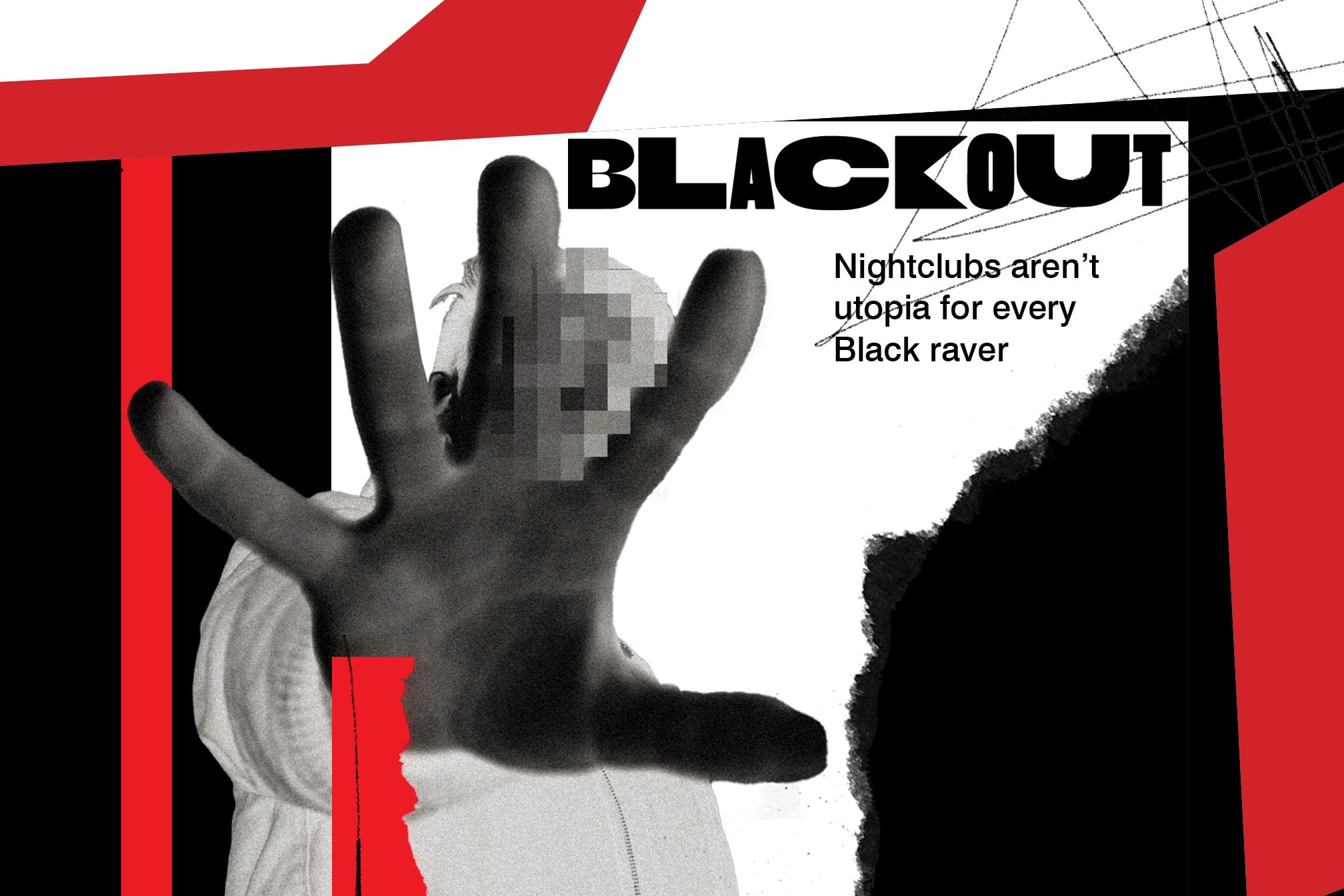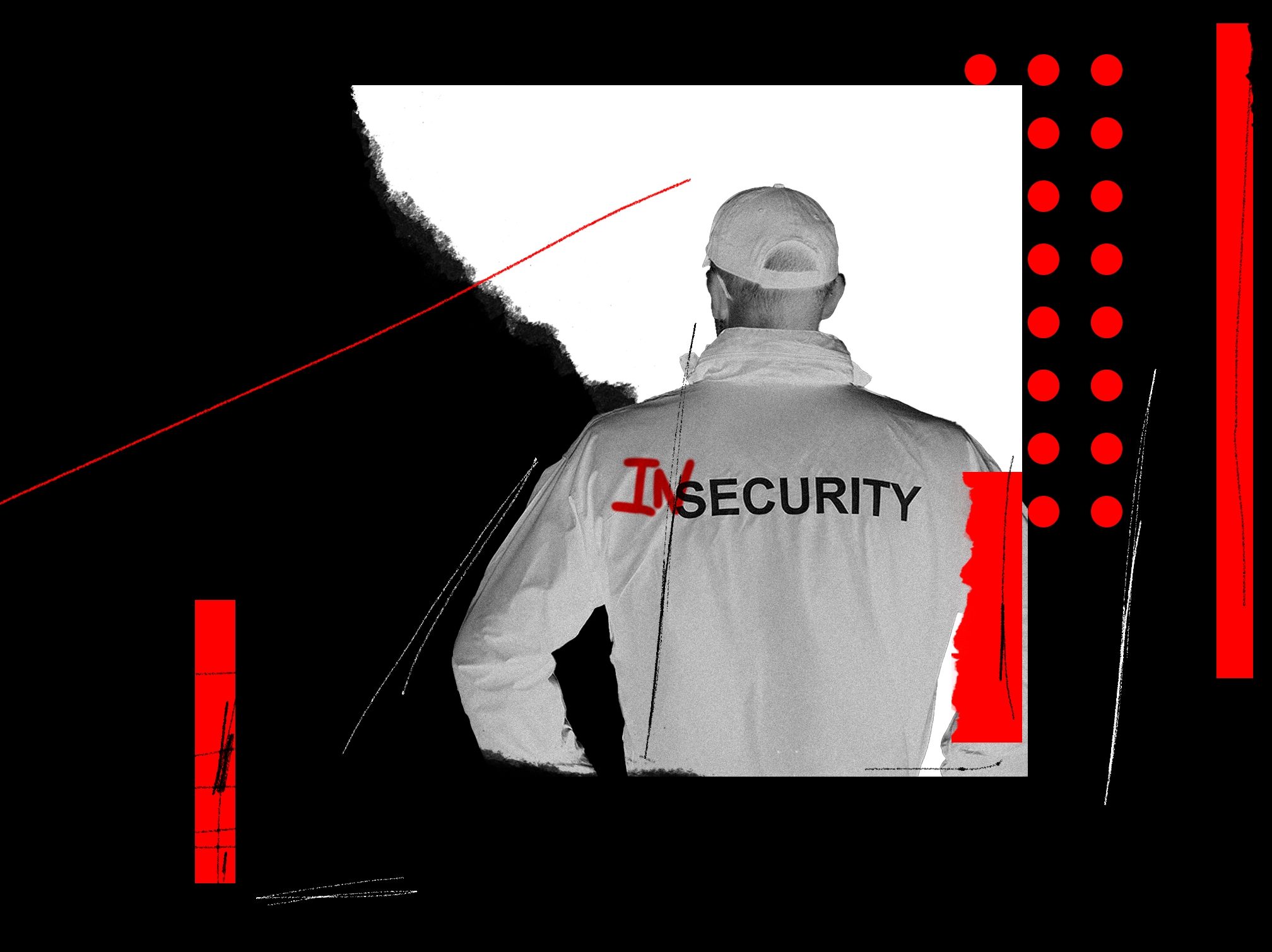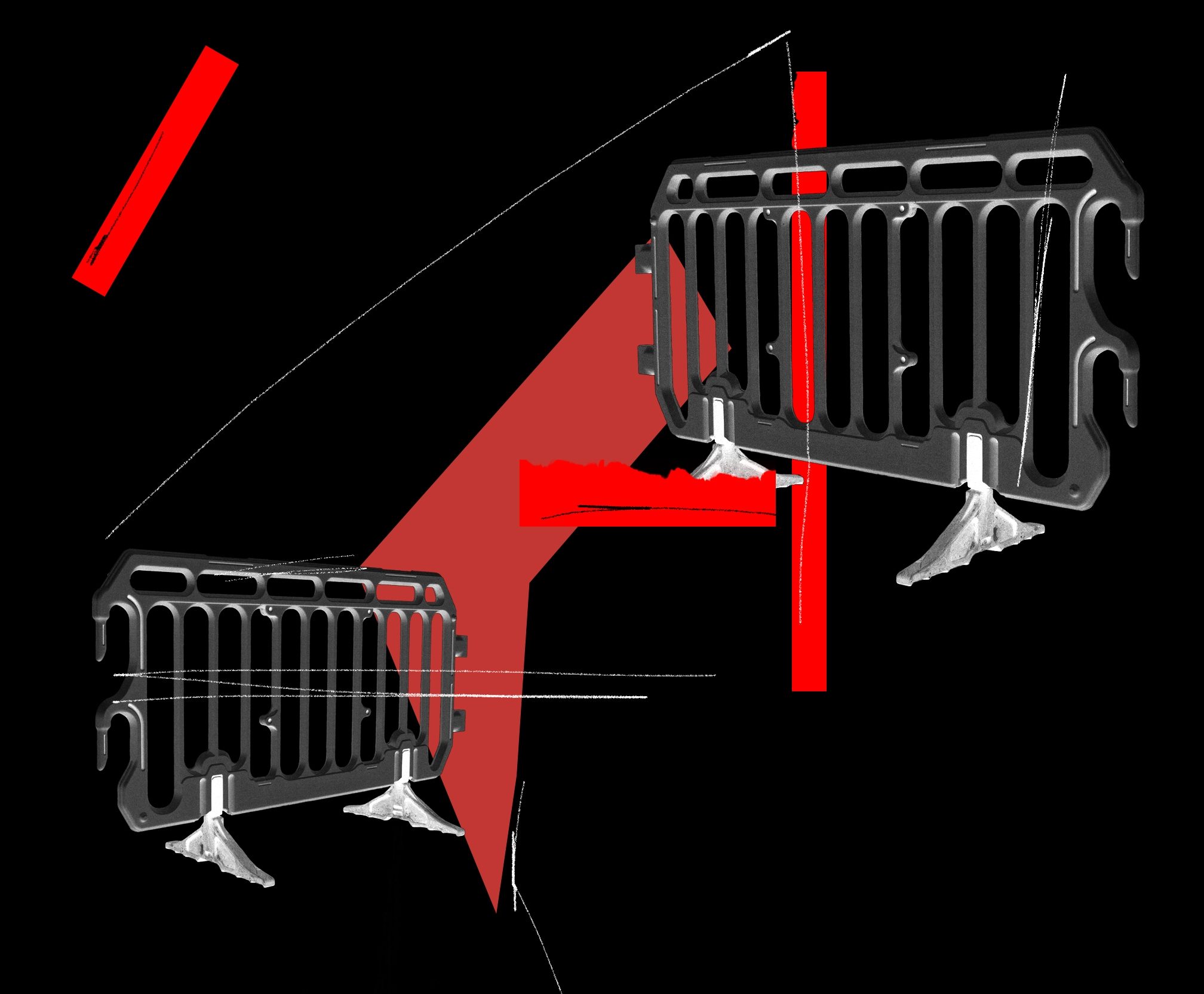 Features
Features
Nightclubs aren't utopia for every Black raver
Joseph 'JP' Patterson details the discrimination that runs throughout clubland
The year was 2011. Jamie Jones’ remix of Azari & III’s ‘Hungry For The Power’ had just hit the UK streets, tinted whips reverberating with the sounds of Jones’ groovy, bass-fuelled edit and Azari’s lyrics of wanting more becoming the hustler’s new mantra. There was something in the air.
I hadn’t seen dance music grab the attention of young Black Brits like this since the ‘Migraine Skank’ era of UK funky, which goes doubly for myself: before Jones’ ‘Hungry’ flip I was strictly into road rap and grime (apart from bassline’s late 2000s reign in the Midlands where I’d lived for many years). For a long time, house (or ‘oontz oontz music’) was seen by a generation of Black ravers as a sound that only white people liked, which of course was before they schooled themselves on its deep roots in Blackness.
Soon, underground house events began to pop up all over, from Can’t Stop Won’t Stop at Aquarium to House Entertainment, AudioRehab to Ava Word. Ibiza became our new party destination, the back of DC10 a sea of Black and brown ravers. It quickly grew into a scene of its own — regular faces in regular places — with a community feel I imagine was very similar to the Black house/techno scene up North in the mid-1980s. However, it didn't take long before the more established house scene’s ‘love and unity’ sermon got thrown into the wind.
Enter: shuffle-gate.
In 2012, I penned a piece for Mixmag on the shuffle dance craze that had swept over UK clubland, popularised by mostly Black and working class Brits. “The stereotypical shuffler brings aggression and a badman mentality to parties, making a lot of people feel uncomfortable.” That was one quote I used from the ‘Anti-Foot Shuffling Campaign’ group on Facebook, whose messaging was no different to Trump’s ‘Make America Great Again’ — full of racist undertones.
This then led to popular parties like Creche and ABODE banning people from dancing in this manner, alienating a whole group of people who just wanted to enjoy themselves without being judged. “Foot shufflers and foot shuffling is banned from Creche for all future events. And those dodgy caps! Turn up wearing a cap saying ‘BOY’ and you probably won’t get in,” Creche wrote on Facebook while fans of ABODE celebrated the ban on socials.

DJ Jawzy — a long-time friend of mine who is part Black — founded #IGOTSHAPES, a YouTube series that spotlights shufflers from across London. He tells me there was a stigma right from the jump. “Brands and certain ravers attached trouble with events that shufflers seemed to attend,” he says. “Some events were definitely seen as more ‘hood’, but more so in the way people dressed than any violence, and this is what seems to scare the more established promoters and brands.” There was a clear divide amongst Black and white ravers, which almost seemed planned by certain promoters. “You had events like Can’t Stop Won’t Stop and Ava Word whose crowds used to ‘cut shapes’, but you also had parties like Magna Carta who had a lot of shufflers, but they were young white kids from Essex.”
A known shuffler and regular on the London house scene, PuffTheHouseMan has seen his friends get racially profiled more times than he can count. “I’m white, from a working-class background in South London,” he says, “and I’ve been submerged in Black culture all my life — house and techno is Black culture. With the whole shuffling thing, certain white people looked at it like, ‘These guys are gonna cause trouble,’ even though we’d just be dancing, creating a vibe. And because of this, I couldn’t go out with my friends because they wouldn’t get in most places. So I had to make new friends or go out on my own. Once I reached boiling point and called out the racism online, I was banned and sometimes removed from several venues in London.”
Ashley, who is mixed-race, is one of the friends that Puff mentions. For him, it couldn’t have been more blatant that what he experienced was discrimination at the door of a leading ‘underground’ London club. “Me and my friend Wesley, who has now passed away, we went to Studio 338 and queued up for a good 30 minutes to get in and when we got to the door, there were two white security guards at the door. They looked at me and Wesley and said, ‘You’re not coming in. You look like criminals, especially you with the tattoo on your face,’ pointing to Wesley. So I thought, ‘Okay then.’ Another time, we changed our whole style of dress and went with a couple of our white mates. They let them in, but not me and Wesley. I would never try to go to that place ever again in my life.”
Studio 338 hosts promoters such as Rinse, SBTV and Days Like These, which welcome a Black crowd, and the venue has recently had the likes of Wiley, DJ Marky and Luck & Neat grace its stage. But while a venue can promote diversity via its bookings, microagressions and discrimination can manifest in more subtle ways, such as who the door pickers or (often outsourced) security let into the venue. Studio 338 employs a door picker to make sure the right people are let in — but what does the ‘right’ person look like and what stereotypes and prejudices inform that decision? Club owners and promoters have a responsibility to hire a diverse team to manage the door, to discern which ravers should or shouldn’t be let in. And when I say ‘diverse’, I don’t necessarily mean non-white people; think more diverse in thought because Uncle Tom’s are a real thing, too.
One of my own friends, Aaron, says he’s had similar issues. “I found myself traveling all the way to Studio 338, with a ticket, and on a couple of occasions being turned away for no reason,” he says. “I remember one time me and my friend messaged a party called ABODE that was being held there; my friend is white. We both messaged them at the same time and they sent him the link for the ticket and not me. On top of that, shuffling, which is seen as typically a Black thing, 338 and ABODE made it clear that this style of dancing was not welcome at their venue or events and I feel that instead of them directly refusing entry to young Black people, they targeted the style of dancing and used this as an angle to not allow certain people into their parties.” While Studio 338 maintains that people can dance however they want once inside the venue, a post on ABODE’s Instagram from 2015 revealed that “we are not about Balaclavas & gun fingers so you and your boys won’t be getting in simple…. Unfortunately the scene has a new wave of youngsters that don’t care about the music it’s just about looking WELL ARD”.
In statements to Mixmag which can be found below, Studio 338 says that it has since changed its entire door and security team and that the door and security team has always included people of colour to make sure “the people inside [the club] are safe and are able to enjoy their night in peace with good people around them.” The club also states that “it has implemented further checks and balances in our hiring policy to minimise the chances of a rogue element creeping in,” while ABODE has apologised for the Instagram post and said that "we see diversity as not only important but essential and we are constantly improving our approach, from the venues we work with, to our staffing, to the programming we offer and we’re looking forward to positive change."
A lot of this judge-them-by-the-way-they-look attitude is typical of West End clubs. As far back as 2015, DSTRKT — a nightclub just off Chinatown — was made an example of on social media after a group of Black women were allegedly refused entry for being “too dark” and “overweight”. BBC Radio presenter Edward Adoo, who has been DJing in the capital for over 20 years, agrees that this part of town has always had weird energy for Black folk. “I found it easier to obtain bookings at members’ clubs as there was less prejudice and ignorance,” he says. “Most of the promoters I’ve dealt with in the past have opted for a trendy look: young, mainly white DJs, and photogenic women. It has become class and race based. It became apparent one day when I was out for a friend’s engagement gathering at a bar on Old Compton St. I asked the DJ to play Tinie Tempah’s ‘Pass Out’ five times, then was told the track was banned and no Black music was allowed to be played. The mindset of club owners and promoters have ruined careers and aspirations for DJs to build their profile and gain an audience, and there must be a change.”
Form 696, the now-defunct police risk assessment form that promoters had to fill in before putting on any event with Black music, didn’t help either. “When I was trying to get Form 696 scrapped, the argument was why is this okay for Black events but not applicable to, say, a rock event,” says London-based promoter Steven Cee. “Where is the fairness in that? How many artists over the years have been unable to tour or do a live show because of a stigma that Black people cause trouble? Now that some events are allowed to happen and they’ve seen that there’s no trouble, there is proof that whoever developed this stigma was very wrong.”

Steven Cee is a UK music veteran whose resume speaks for itself. He’s the driving force behind grime’s Eskimo Dance and works alongside DJ Majesty in putting on some of the best house raves in London with Audiowhore. But even with this to his name, he still battles with prejudice behind the scenes. “Audiowhore gets racially profiled on a regular basis,” he says. “If we wanted to get certain prominent venues — and trust me, we’ve tried — we’d get refused based on what race the majority of our crowd is perceived to be. I literally have email correspondence from a licensing officer showing clear racial bias after they cancelled our Siesta party last-minute. We’ve consistently proven that we’re one of very few brands that can put on events with thousands of people in attendance without ‘headline acts’, in venues like Brixton Academy and Brixton Electric. Other events that are nowhere near as popular as us, with predominantly white attendees, are seen regularly in these venues.”
Cee also believes it starts with the security staff employed by the venues.
“Security firms have to take some blame in this,” he says. “Something could happen one weekend at the door and they’ll take it personally forever, and spread misinformation to other venue managers that the crowd is trouble, when, in fact, it isn’t the crowd — it’s two or three bad apples. I feel like there’s been an agenda to spread negativity against Black people for a good few years now. If something bad happens at a Black event, it’s very quickly labelled Black-on-Black crime or gangs having a war with each other. But the same thing could happen at a white event and you’d hear nothing. Some venues will blame it on licencing, that if something happens they will lose their licence. But in reality, there is no rule on paper that says you can’t have a Black event; it’s become an unwritten rule between out-of-touch licence officers and venue managers, and that has to change.”
DJ Shenin Amara of the popular House Passion event believes that everyone — on every level — has a part to play in this much-needed change. “London has always been an epicentre for UK nightlife,” he says, “and my assessment of the prejudice shown in clubland has resulted in institutionalised racism within the dance industry. Whether intended or not, many agents, record labels, promoters and acts are complicit in this. Promoters who franchise global brands have a monopoly on the capital’s biggest venues, therefore aspiring artists and promoters feel they need to conform to this to succeed in the industry. I’ve witnessed many Black artists feel they need to escape or hide their origins for big labels and agents to take them seriously.”
Nathan Kay works in the management teams at EGG LDN and Creations Origin. Having worked behind the dance music scenes for a number of years, he knows that there is some good there, but more could still be done. “There are many great brands throughout the London house scene who know how to do things right,” he says, “but there are still a few who tarnish the name of our beloved industry. Firstly, I have to say how amazing it is to see the Black success achieved from the likes of Ali Bee, who has been the main promoter at EGG for the last 10-plus years, and LoveJuice founder George Mensah. The colour of the party owner’s skin isn’t anything to do with how welcomed you feel at an event, but to see Black people achieving so much in an industry where being Black has deemed to be such an issue is nothing short of inspiring.”
Kay adds that “in order to prevent alienation of any group of people, the first step is education. Educating yourself on the culture you are profiting off is essential, not only to prevent that alienation but also to appreciate and fully understand what and why you are doing what you are doing. Once you have an understanding of the journey that house music has been through, you should easily be able to acknowledge the importance of ensuring your parties are fully representing our culture.”
In a world still feeling the effects of George Floyd, Breonna Taylor, and Ahmaud Arbery’s callous murders — thanks to the ongoing work of Black Lives Matter, all forms of discrimination are being brought to attention and getting dealt with from the root up, and the club scene in the UK and beyond is next in line. Most of us can’t wait to hit the dance post-COVID-19, but once things are back to normal, we need to see some tangible change. If the major players in the dance music industry want to uphold their ‘love and unity’ sermon, now would be the perfect time to rethink their strategies that have hurt not only Black DJs and promoters, but Black partygoers too. As Steven Cee says, “We will never be equal until we’re treated the same as everybody else.”
Joseph 'JP' Patterson is Senior Editor at Complex UK and co-founder of Trench magazine. Follow him on Twitter

Statement from ABODE:
Six years ago ABODE shared a post that disparaged foot shuffling at one of our events. The post was against our ethos of bringing people from different backgrounds together through music and was deleted shortly after it was posted. It did not reflect ABODE's views and we are sorry for the offence that it caused. We see diversity as not only important but essential and we are improving our approach, from the venues we work with, to our staffing, to the programming we offer and we’re looking forward to positive change.
Statement from Dan Perrin, Music And Events Director, Studio 338:
Our door policy has been in place since the beginning of the Studio 338 project. On arrival, I was the one who insisted that we must have a door picker to work over and above the security team, to ensure that the people coming into the venue will contribute positively to the vibe inside and not create any danger or detriment to other clubbers. We want people inside who have come for great music and a great party - that is the vast majority of people, but we all know that there are a small number in our city (or any city for that matter) who come for other reasons (stealing phones, harassing people, fighting etc) and it's best not to let them inside if we can help it. This has absolutely nothing to do with the colour of someone's skin or the way someone looks, despite the question posed in this article. People are individuals, not colours.
I can categorically state that this decision making process is based only on these factors. The colour of someone's skin or their ethnic background plays absolutely no part in this at all. Our only objectives are to make sure the people inside Studio 338 are safe and are able to enjoy their night, in peace, with good people around them. Previously, if we have had any concerns that any member of staff does not demonstrably share these values, they have been immediately let go. On request Mixmag informed us that the 2 complaints relate to alleged incidents in 2015/2016. Since then we have changed our entire door and security team and so it's obviously pretty hard to investigate or substantiate these claims from 5 years ago sadly, however in the past few years we have implemented further checks and balances in our hiring policy to minimise the chances of a rogue element creeping in with the individuals we employ for security and door work. This is an issue which is very close to my heart and anybody who wants further proof of this can check me out as an individual.
I want to be clear on one thing. The security and door team in 2015/2016 (just as now) contained many people of colour. I find the suggestion that if a Black security guard turns away a Black person, they should be labelled an 'uncle Tom' (as is inferred in this article) very offensive. A Black person, just like any person, of any colour, should have independence of thought and the ability to make decisions based on what they as an individual feel is right. Not the colour of their skin or anyone else's. There should be no expectation for someone to act a certain way or do certain things just because they happen to be black (or white or any other colour)
We are immensely proud that Studio 338 plays host to many different demographics and audiences and our love and support for BAME communities, projects and artistic output should be apparent in our booking policy which regularly includes SBTV, Idiot Savant, DLT, Rinse and lots more events which, as Mixmag have correctly stated, welcome a Black crowd.
From the vast and incredible world music scene which i can choose from to include in the Studio 338 calendar, I regularly select amazing events run by Black people with a strong Black following. I'm not forced to do that, I proactively seek to do that. In the same way I try to attract the best LGBT events to the venue because i want everyone to be able to come and have a good time here and for our offering to be as varied and accessible as possible.
So to be completely honest, it really doesn't bother me what Mixmag thinks of us or what they want to print because I know that our intentions are always good....what genuinely hurts me and has kept me up at night since I learned of the article, is the thought that any person of colour might read this and think they are not welcome at our club. I can absolutely, personally, promise you that you are - please come and see for yourself once we reopen next year.


